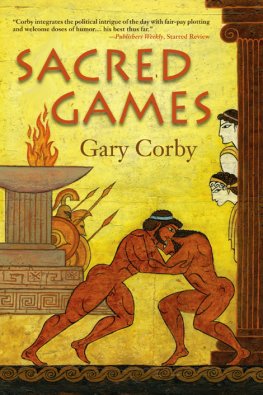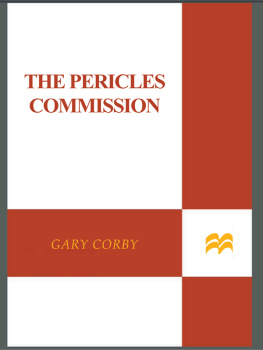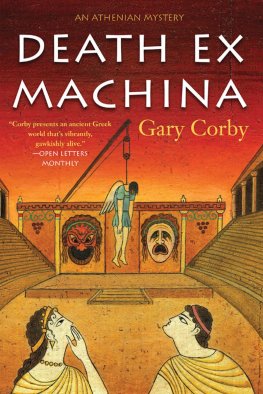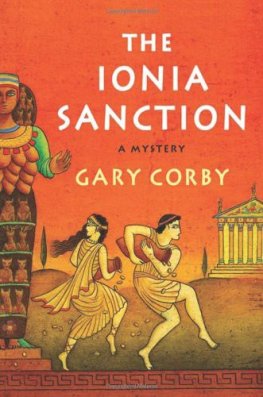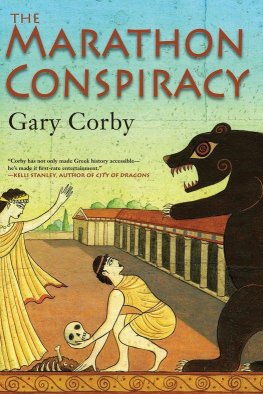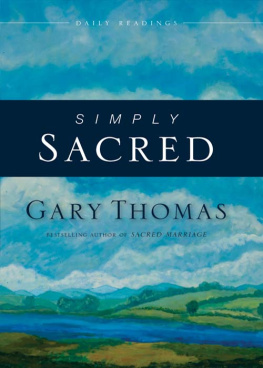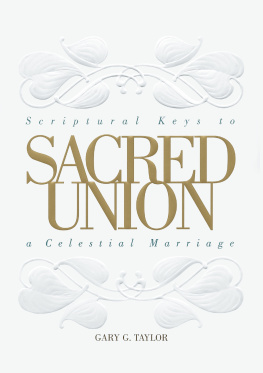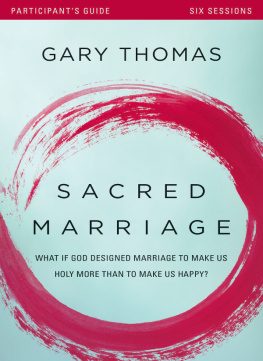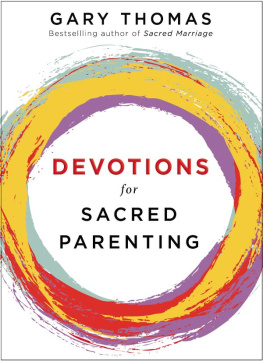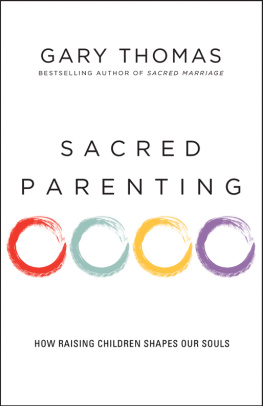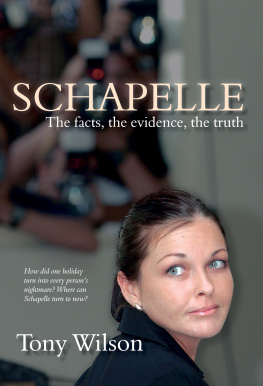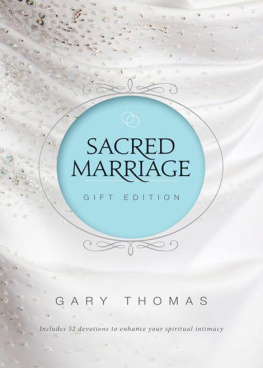Gary Corby - Sacred Games
Here you can read online Gary Corby - Sacred Games full text of the book (entire story) in english for free. Download pdf and epub, get meaning, cover and reviews about this ebook. year: 2013, publisher: Soho Press, genre: Detective and thriller. Description of the work, (preface) as well as reviews are available. Best literature library LitArk.com created for fans of good reading and offers a wide selection of genres:
Romance novel
Science fiction
Adventure
Detective
Science
History
Home and family
Prose
Art
Politics
Computer
Non-fiction
Religion
Business
Children
Humor
Choose a favorite category and find really read worthwhile books. Enjoy immersion in the world of imagination, feel the emotions of the characters or learn something new for yourself, make an fascinating discovery.
- Book:Sacred Games
- Author:
- Publisher:Soho Press
- Genre:
- Year:2013
- ISBN:978-1-61695-228-0
- Rating:5 / 5
- Favourites:Add to favourites
- Your mark:
- 100
- 1
- 2
- 3
- 4
- 5
Sacred Games: summary, description and annotation
We offer to read an annotation, description, summary or preface (depends on what the author of the book "Sacred Games" wrote himself). If you haven't found the necessary information about the book — write in the comments, we will try to find it.
Sacred Games — read online for free the complete book (whole text) full work
Below is the text of the book, divided by pages. System saving the place of the last page read, allows you to conveniently read the book "Sacred Games" online for free, without having to search again every time where you left off. Put a bookmark, and you can go to the page where you finished reading at any time.
Font size:
Interval:
Bookmark:
Gary Corby
Sacred Games
DAY 1 OF THE 80 TH OLYMPIAD OF THE SACRED GAMES
The procession wound past the Sanctuary of Zeus. Theyd been walking two days, from Elis to Olympia.
Will we get to see someone die? Socrates asked. Like any boy, he looked forward to the violence of the struggle more than the beauty of the sport. Unlike me, Socrates had never seen death. To him, it was still a game.
How should I know? I said. You can only hope.
We stood in the crowd to watch the long line file past: the athletes, their fathers and uncles and brothers, the trainers, and the Ten Judges of the Games. Socrates jumped up and down to see over the shoulders of the spectators in front. Thats what he got for being a twelve-year-old in a crowd of mostly men.
The team from Sparta passed by, one of the few teams I could recognize without having to ask, because Spartans march in step where others walk. At the rear of the Spartans came one of the largest men I had ever seen, a towering hulk-he was half as tall again as me, with shoulders that could have hefted an ox. The chiton he wore had enough material to double as the sail for a small boat. The blacksmith whod made his armor must have wept for joy at the challenge, then died of exhaustion trying to cover such a chest. Despite the two-day march, the large mans stride was brisk; he looked neither left nor right, and he swung his well-muscled arms in much the same style as the Titans once had done when they strode the earth.
The Athenians came next. Leading them, almost in the shadow of the huge Spartan, was Timodemus, son of Timonous, of the deme Archarnae. I waved at once and shouted, Chaire, Timodemus! Hail, Timodemus!
He smiled broadly and waved back. Chaire, Nicolaos!
I raised my arms in a victory salute, meaning he would win his event. Other men, all Athenians, cheered for Timodemus, too. Everyone knew he was one of the stars of this Olympics, a likely winner of the pankration, and Athenss best hope of a victory.
The large Spartan, who had ignored everyone around him up to now, turned and said something to Timodemus. Timos smile disappeared in an instant. Perhaps the Spartan had complained of too much levity on what was supposed to be a solemn occasion.
Beside Timo walked a man who looked so like my friend I could have sworn the two were brothers, had I not known better. They were both short men and wore their hair cut almost to the scalp, but by his weathered skin and destroyed left eye, I knew the other to be Timos father. A third man, stockier and noticeably taller, walked with them a half-pace behind. He looked like an older brother, and one more tired by the long march. This could be no one but Timos uncle, and the eldest of the three. The men of Timos family were all former athletes, and though they were too old to compete, the father at least had kept himself in decent condition.
Timodemus and the rest of the Athenians were followed by the Corinthians, then the Thebans, the men of Argos and Thessaly, and Rhodes and all the other cities with athletes whose excellence permitted them to compete at the eightieth Games sacred to Zeus, king of the gods.
The last of the contestants passed by, the forlorn and grimy men from Megara, who every step of the way had eaten the dust raised by those whod gone before. We spectators waited for the tail to pass, then followed as one large, milling crowd.
Though it was still early morning, already I sweated freely. The close mass of spectators added to the heat of this already hot midsummer day. There must have been ten thousand of us, from every part of Hellas, all at this one place called Olympia, here to bring glory to Zeus in the form of the greatest sport in the world.
We skirted the Sanctuary of Zeus, passed the newly raised temple-so new in fact Id yet to look inside-and stopped at the Bouleterion, the council house of Olympia. Men elbowed one another for the best positions to see and hear the ceremony to come. Those at the back would struggle to hear. Socrates and I were small enough to weave our way toward the front.
The hellanodikai-the Judges of the Hellenes-took the steps up the Bouleterion. They were dressed in formal chitons of bright colors, with long sleeves that covered their arms and hems that went all the way down to their ankles. All ten wore expressions to match the gravity of their task. The judges were citizens of the city of Elis, within whose land Olympia lies. For the next five days, the word of these men was law, and no man, not Pericles nor a king of Sparta, could gainsay them. All were chosen for their honesty and integrity.
Before the council house stood a bronze statue of Zeus Herkios, who is Zeus of the Oaths. He was twice the height of any man, and he held in each hand a deadly thunderbolt, his right arm raised and ready to throw, a promise of retribution to any man who broke an oath made before him.
An enormous tripod stood to one side of the Zeus. It held aloft a wide brazier that had been polished till it gleamed and from which orange flames leaped up in a futile attempt to touch Apollos sun. I could feel the heat of the fire upon my face, even from a distance.
On the other side of Zeus lay a thick altar stone, where a boar squealed and struggled, its legs held down by two assistants whose chitons were soaked with sweat.
The Chief of the Judges stepped away from his fellows to stand before Zeus and address the crowd. He delivered a prayer-a loud one over the squeals of the waiting sacrifice-then recited the oath of the judges, in which he promised to be fair and honest in all his decisions, to take no bribes, and to respect the rules of the Games.
An assistant handed a knife to the Chief Judge, who took two steps to the writhing boar. He pushed back its head with his left hand to expose the neck to the sharp blade in his right. As he did, the animal twisted so much its hind legs came free; the body rotated and almost fell. The men swore, and their knees sagged under the weight as they struggled to prevent the squirming, screeching sacrifice from hitting the ground.
Men about me drew in their breath; if the animal escaped, it would be a disaster. The assistant whod presented the knife jumped in and got his arms underneath at the last moment, and together they hauled the sacrifice back up. The Chief Judge didnt wait for anything else to go wrong. He plunged his knife into the boars throat at once and sawed across the flesh. The blood spurted over everyone clustered about the altar. As sacrifices go, it had been as bad as you could get, but it was a death offered to Zeus, and that was the most important thing.
The crowd resumed breathing.
A man beside me said, The sacrifice didnt go willingly. Its an ill omen. Men around him nodded, and I could only agree.
Not so, said another man. The boar struggled to live as the competitors will struggle to win. Zeus favors us with a tough contest this Olympiad. It was a middle-aged man who spoke, and balding, but his voice held authority and a melodious tone that carried well. Many heard him, and the crowd settled at his words.
The way the man had controlled us with his voice reminded me of Pericles. Curious, I studied this stranger from aside. He had the look of a priest about him. But no priest Id ever seen had such a piercing way with his eyes or such intensity of expression. His head turned at that moment, and our eyes locked. He must have known Id been staring, but he didnt seem upset so much as resigned, as if he was used to such rudeness. I was embarrassed and turned back to the action before I felt forced to say something.
The Butcher of the Games stepped forward with his meat cleaver. He dismembered the thighs of the still-quivering boar and cut the meat into thin slices. The Chief Judge took the first slice, and with bloody fingers tossed it into the brazier, where the offering could be heard to sizzle as the meat roasted to charcoal. They were not cooking the flesh but giving it to Zeus, because meat on which an oath has been made may not be eaten by mortal man.
Font size:
Interval:
Bookmark:
Similar books «Sacred Games»
Look at similar books to Sacred Games. We have selected literature similar in name and meaning in the hope of providing readers with more options to find new, interesting, not yet read works.
Discussion, reviews of the book Sacred Games and just readers' own opinions. Leave your comments, write what you think about the work, its meaning or the main characters. Specify what exactly you liked and what you didn't like, and why you think so.

